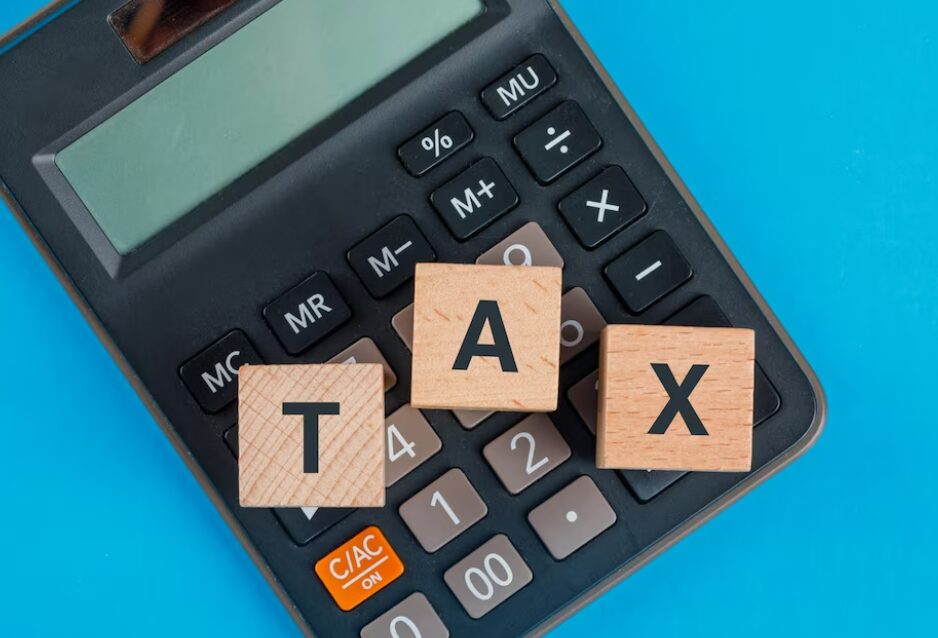Corporate Tax in Delhi
Corporate Tax in Delhi is levied on the income earned by domestic and foreign companies operating within the country. The taxation of companies in India is governed by the Income Tax Act, 1961, and is administered by the Central Board of Direct Taxes (CBDT), under the authority of the Department of Revenue, Ministry of Finance. CONTACT US NOW

Minimum Alternate Tax (MAT) Corporate Tax in Delhi
Applicability: MAT is applicable to companies that are liable to pay tax under normal provisions of the Income Tax Act but have paid no or negligible tax due to various tax incentives, deductions, and exemptions.
Rate: The MAT rate is 15% of the book profit plus surcharge and cess.
Dividend Distribution Tax (DDT):
Abolishment: As of April 1, 2020, Dividend Distribution Tax (DDT) has been abolished.
Dividends distributed by companies are now taxed in the hands of the recipients at their applicable income tax rates.
Surcharge and Cess:
Surcharge: Surcharge is an additional tax levied on the income tax payable by companies based on their income levels.
Health and Education Cess: Health and Education Cess is levied on the income tax payable, including surcharge.
The rates of surcharge and cess may vary based on the total income or profit of the company.
Tax Incentives and Deductions:
Incentives: The Income Tax Act provides various tax incentives, deductions, and exemptions to encourage investment, growth, and development in specific sectors or regions.
Examples: Deductions for research and development.
Exemptions for export-oriented units.
Deductions for investments in certain industries and infrastructure projects.
Compliance and Reporting:
Financial Records: Companies are required to maintain proper accounting records and prepare financial statements in accordance with the applicable accounting standards.
Tax Audit: Certain companies are required to undergo tax audits conducted by chartered accountants to ensure compliance with the provisions of the Income Tax Act.
Transfer Pricing Regulations: Companies engaged in certain transactions with related parties are required to comply with transfer pricing regulations to ensure that transactions are conducted at arm’s length prices.
Income Tax Returns: Companies are required to file income tax returns annually, disclosing their total income, deductions, tax liability, and other relevant details to the Income Tax Department
Benefits of Corporate Tax in India
Revenue Generation: Corporate Tax in Delhi is a significant source of revenue for the government. It contributes to funding various developmental projects, public welfare programs, and infrastructure initiatives aimed at promoting economic growth and social welfare.
Encouraging Investment: Corporate tax policies play a crucial role in attracting both domestic and foreign investment into the country. Lower corporate tax rates and tax incentives encourage businesses to invest in new projects, expand existing operations, and innovate, leading to job creation and economic development.
Promoting Entrepreneurship: Favorable corporate tax policies encourage entrepreneurship and foster the growth of small and medium-sized enterprises (SMEs). Reduced tax rates and exemptions for startups and MSMEs encourage entrepreneurial ventures, innovation, and the creation of new businesses, contributing to economic dynamism and innovation.
Stimulating Economic Growth: Corporate tax policies can influence business decisions regarding investment, expansion, and resource allocation. Lower tax rates and incentives encourage companies to reinvest profits into their businesses, leading to increased productivity, competitiveness, and overall economic growth.
Improving Competitiveness: Competitive corporate tax rates enhance the attractiveness of India as a destination for business investment and promote competitiveness in the global market. Lower tax burdens enable Indian companies to compete more effectively with their counterparts in other countries, attracting foreign investment and boosting exports.
Supporting Employment: Corporate tax policies can indirectly impact employment generation by incentivizing businesses to expand operations, hire additional workers, and invest in workforce development and training programs. Job creation contributes to poverty reduction, social stability, and inclusive growth.
Facilitating Compliance and Transparency: Corporate tax regulations promote transparency and accountability in financial reporting and tax compliance. Companies are required to maintain accurate accounting records, undergo regular audits, and file tax returns in accordance with the provisions of the Income Tax Act, fostering a culture of corporate governance and financial transparency.
Supporting Infrastructure Development: Corporate tax revenues contribute to financing critical infrastructure projects such as roads, railways, ports, airports, and power plants. Investments in infrastructure enhance productivity, connectivity, and competitiveness, laying the foundation for sustainable economic growth and development.
Balancing Fiscal Objectives: Corporate tax policies play a crucial role in achieving a balance between fiscal objectives such as revenue mobilization, economic stability, and social equity. Governments formulate tax policies considering the broader economic context and societal needs, striking a balance between revenue generation and promoting investment and growth.
Corporate Income Tax for Various Business Categories
Domestic Companies: For the financial year 2022-2023, the Corporate Tax in Delhi rate for domestic companies is 25% of their total income.
However, certain conditions may apply, such as the turnover threshold.
New Manufacturing Companies: New manufacturing companies incorporated after October 1, 2019, and starting operations before March 31, 2023, are subject to a reduced corporate income tax rate of 15%.
Foreign Companies: Foreign companies operating in India are taxed at the rate of 40% on their total income, plus applicable surcharge and cess.
However, foreign companies may also be eligible for tax benefits under Double Taxation Avoidance Agreements (DTAA) between India and their home countries.
Limited Liability Partnerships (LLPs): Limited Liability Partnerships (LLPs) are taxed differently from companies. LLPs are not liable to pay corporate income tax.
Instead, LLP partners are taxed individually on their share of profits at their applicable income tax rates.
Partnership Firms: Partnership firms are taxed similarly to LLPs, where the firm itself is not liable to pay corporate income tax.
The partners of the firm are taxed individually on their share of profits at their applicable income tax rates.
Cooperative Societies: Cooperative societies are taxed at a flat rate of 30% of their total income for the financial year 2022-2023.
However, certain cooperatives engaged in specified activities may be eligible for lower tax rates or exemptions under the Income Tax Act.
Small and Medium-sized Enterprises (SMEs): Small and Medium-sized Enterprises (SMEs) with turnover up to a specified limit may be eligible for reduced tax rates or tax exemptions under various schemes and provisions of the Income Tax Act.
SMEs may also benefit from tax incentives and deductions for investments, research and development, and other eligible activities.
Startups: Startups incorporated as companies may be eligible for tax benefits under the Startup India initiative, including a reduced corporate income tax rate of 25% for companies with turnover up to a specified limit and meeting certain criteria.
Checklist for Corporate Tax in India
Tax Registration: Obtain a Permanent Account Number (PAN) from the Income Tax Department.
Register for corporate tax with the tax authorities.
Maintain Proper Records: Maintain accurate accounting records, including financial statements, profit and loss accounts, balance sheets, and other relevant documents.
Tax Planning: Develop a tax planning strategy to minimize tax liabilities while maximizing tax benefits and incentives available under the Income Tax Act.
Compliance with Corporate Tax Laws: Understand and comply with the provisions of the Income Tax Act, including filing requirements, deadlines, and payment schedules.
File Income Tax Returns: File corporate income tax returns (Form ITR-6) annually with the Income Tax Department by the due date.
Ensure accurate reporting of income, deductions, tax credits, and other relevant details in the income tax return.
Pay Advance Tax: Pay advance tax in installments during the financial year based on estimated income and tax liability.
Avoid penalties and interest charges by meeting advance tax payment deadlines.
Tax Audit: Conduct tax audits as required under the Income Tax Act, especially for companies with turnover or income exceeding specified thresholds.
Engage qualified chartered accountants to conduct tax audits and ensure compliance with audit requirements.
Transfer Pricing Compliance: Comply with transfer pricing regulations for transactions with related parties, ensuring that transfer prices are at arm’s length and comply with regulatory requirements.
Claim Tax Deductions and Incentives:
Identify and claim eligible tax deductions, exemptions, and incentives available under the Income Tax Act, such as deductions for research and development, export promotion, and investment in specified sectors.
Maintain Documentation: Maintain proper documentation and records to support tax deductions, exemptions, and credits claimed in the income tax return.
Retain documents such as invoices, receipts, agreements, and certificates for audit and verification purposes.
Stay Updated with Tax Law Changes: Stay informed about changes in tax laws, regulations, and rulings that may impact corporate tax obligations and compliance requirements.
Seek professional advice or guidance to understand and adapt to changes in tax laws and regulations.
Respond to Tax Notices and Queries: Respond promptly to tax notices, inquiries, and communications from the tax authorities.
Provide accurate and complete information in response to tax queries and requests for clarification.
Monitor Tax Liabilities and Refunds: Monitor corporate tax liabilities, payments, and refunds through the Income Tax Department’s online portal.
Verify tax credits, deductions, and refunds claimed in the income tax return and follow up with the tax authorities as needed.
Corporate Tax Rate in India for AY 2024 -2025: Corporate tax rates in India are typically announced as part of the annual budget presented by the Finance Minister. The Finance Bill, which includes proposed tax rates and amendments to tax laws, is usually passed by the Parliament and becomes effective for the relevant assessment year.
To obtain the current corporate tax rate for AY 2024-2025, I recommend referring to the latest official announcements from the Government of India, particularly the Union Budget for the financial year 2023-2024, and subsequent notifications issued by the Ministry of Finance and the Income Tax Department of India. Additionally, businesses can consult with tax professionals or visit the official website of the Income Tax Department for updated information on corporate tax rates and provisions.



